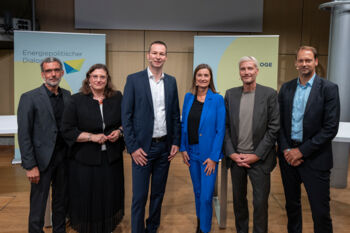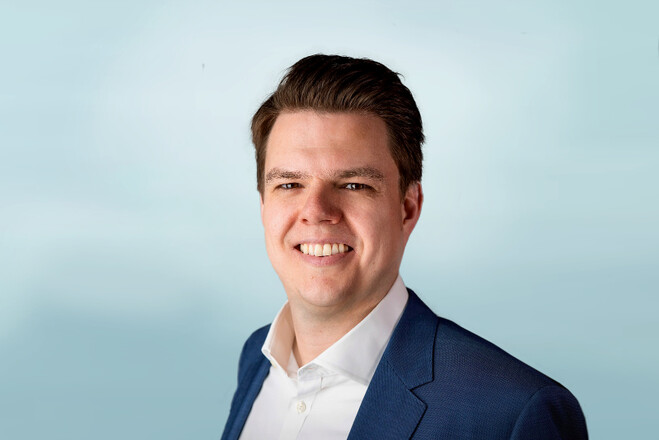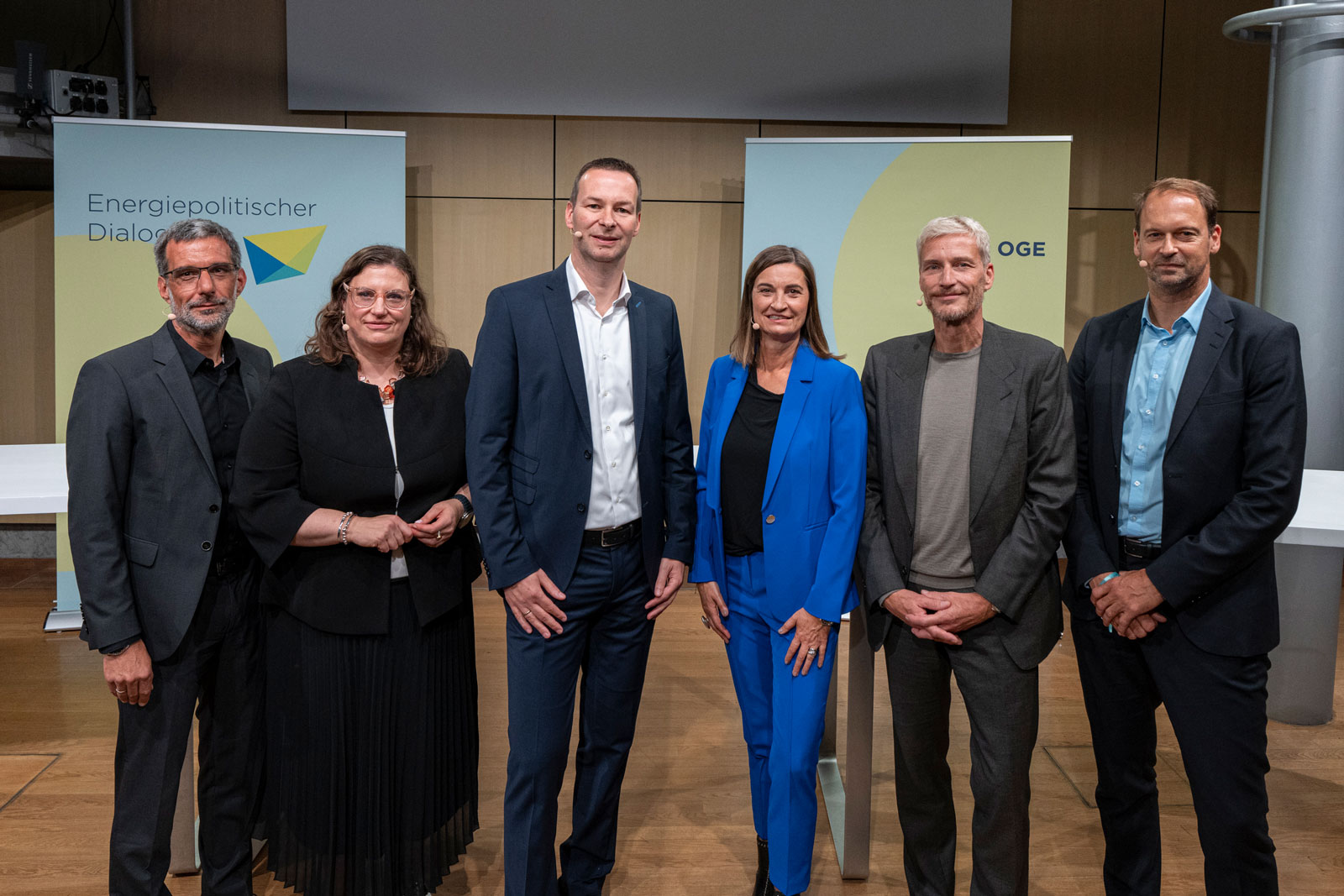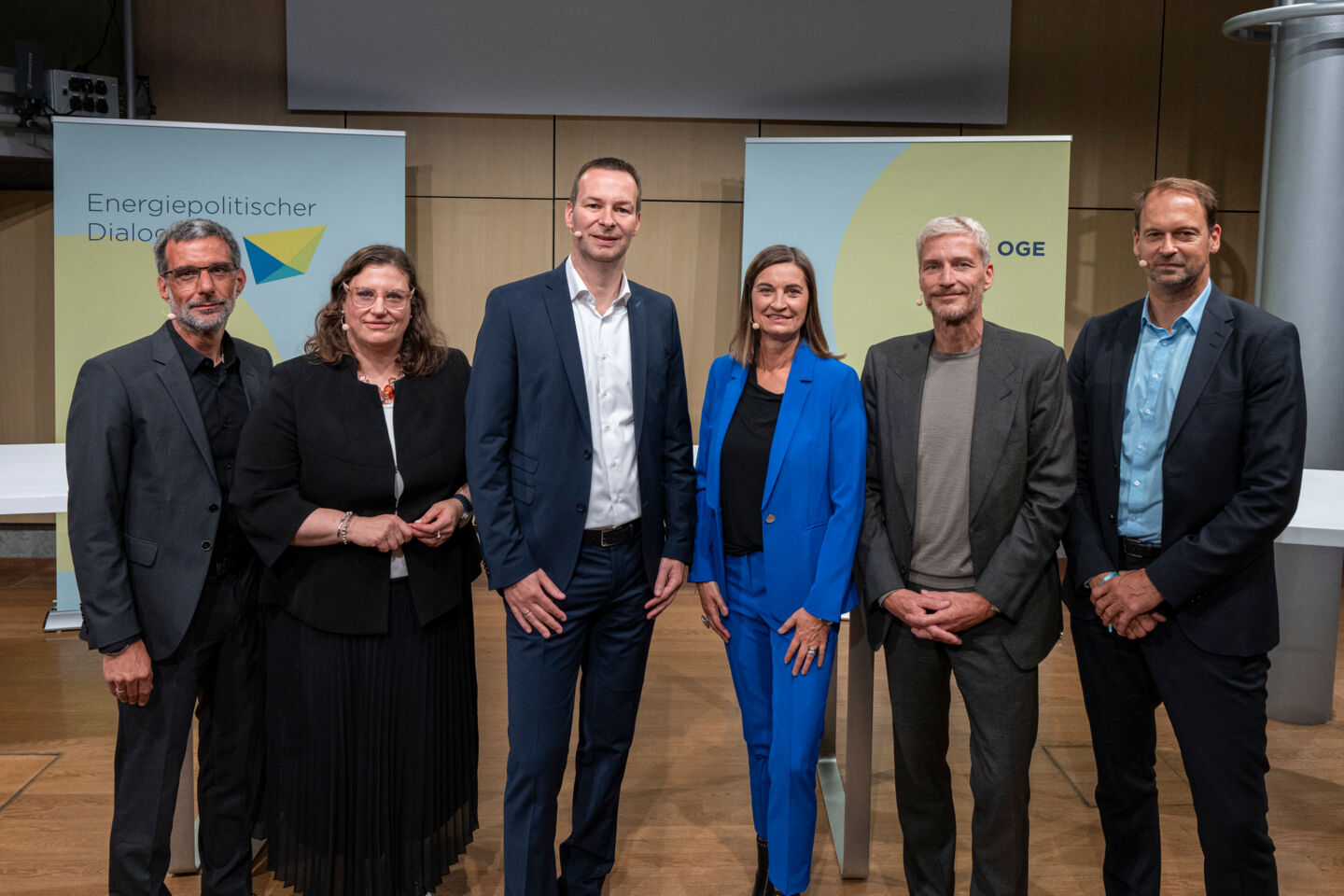In his keynote speech, Thomas Hüwener said: ‘We have already achieved a great deal in terms of the core hydrogen network and expect approval from the Federal Network Agency before the end of this month’. At the same time, he warned policymakers that there were still a number of hurdles to overcome for the hydrogen ramp-up to gain momentum. Among other things, Hüwener suggested that ‘even stronger commitment from the German government and the EU to blue hydrogen as a transition fuel for the decarbonisation of industry’ was needed until sufficient quantities of green hydrogen are available. ‘Of course, the medium and long-term goal is to use only green hydrogen,’ he said. ‘But we now need pragmatic solutions to ramp up hydrogen technology in the short term – also with a view to producing the hydrogen that is urgently needed.’
The subsequent discussion focused in particular on how Germany is dealing with the temporary cancellation of an H2 pipeline from Norway and how the current developments at thyssenkrupp in Duisburg should be viewed.
All the participants agreed, however, that a number of major hurdles had been overcome throughout Germany and that it was now important to join forces and view the hydrogen ramp-up in Germany as a team effort by all stakeholders. Thomas Hüwener summarised the debate as follows: ‘The H2 core network, the import strategy, the H2 Acceleration Act and the funding from H2Infra with 1.5 GW of electrolysis capacity are important. But that’s not enough for the H2 ramp-up. Every single player in the H2 value chain is important. The energy industry, together with politics, authorities, business, industry and society, must work together to create the conditions for achieving the climate targets and the green transformation.’
OGE's Energiepolitischer Dialog Berlin was the second event this year aimed particularly at policymakers but also at guests from industry, business and society following the Energiepolitischen Dialog Ruhr held in Essen in the summer. OGE is also planning two events of this kind next year.



